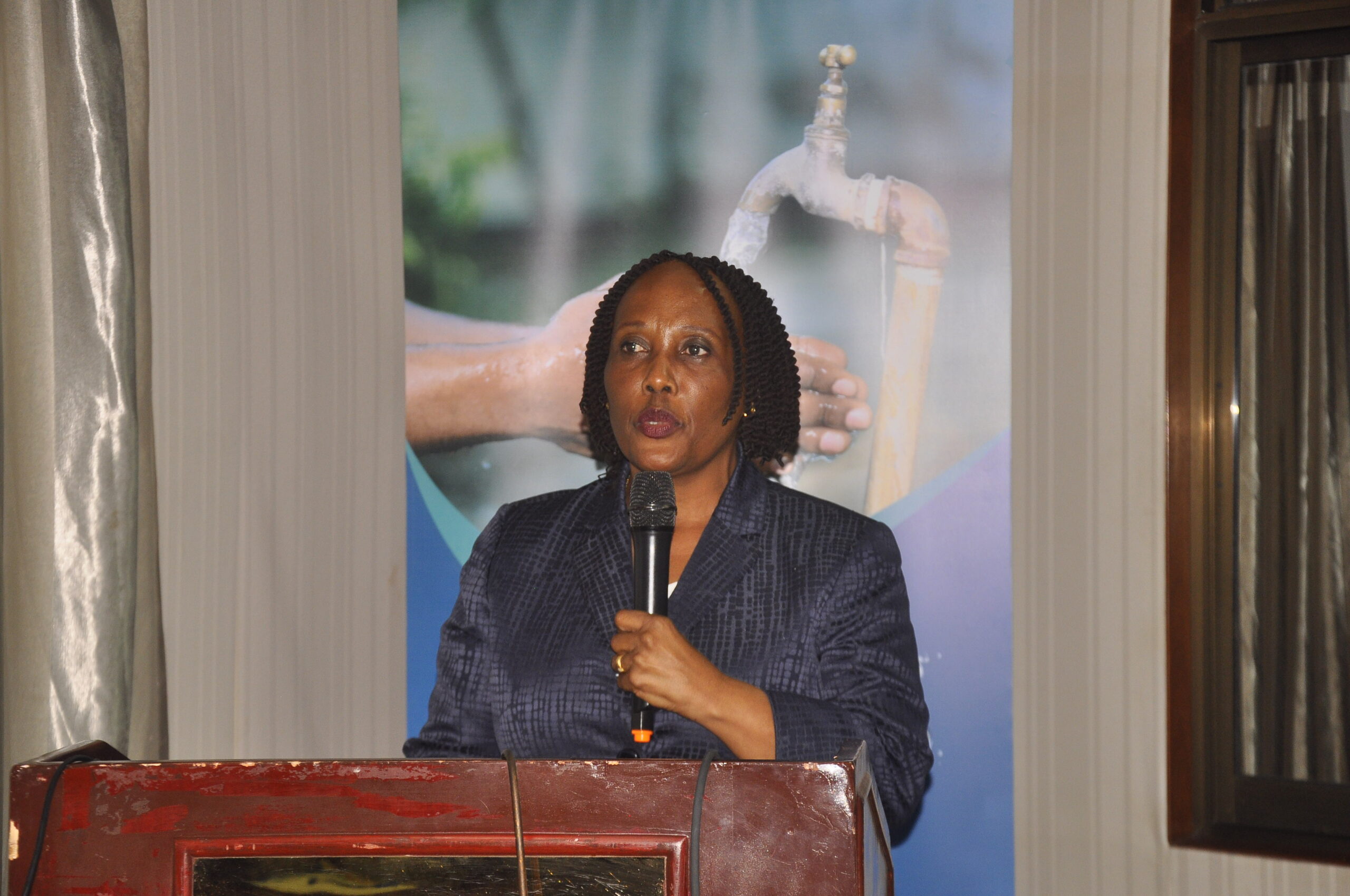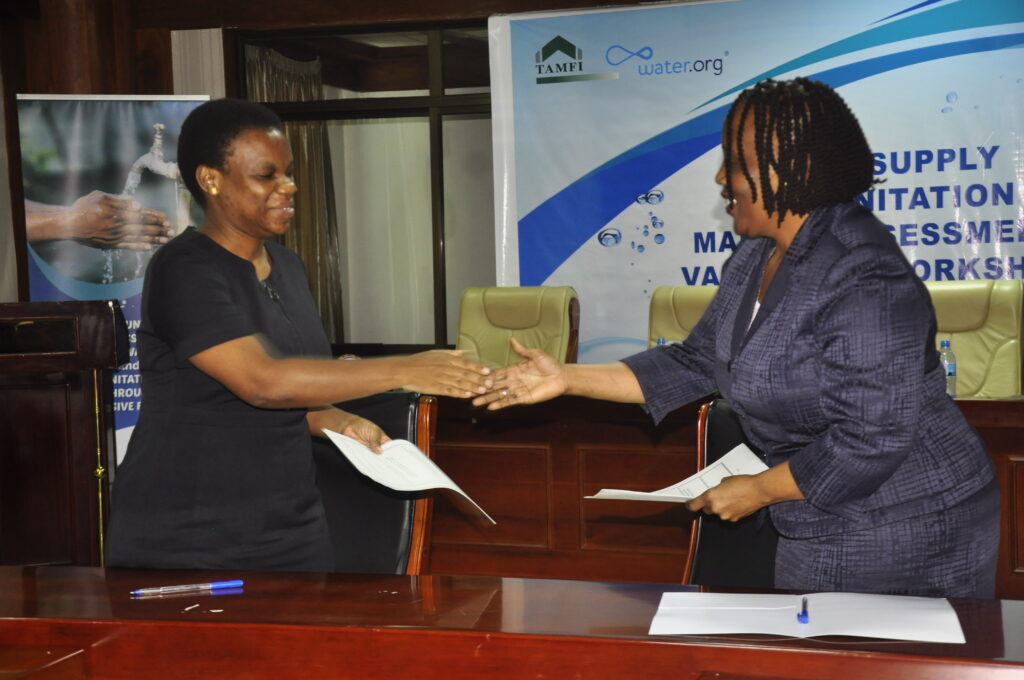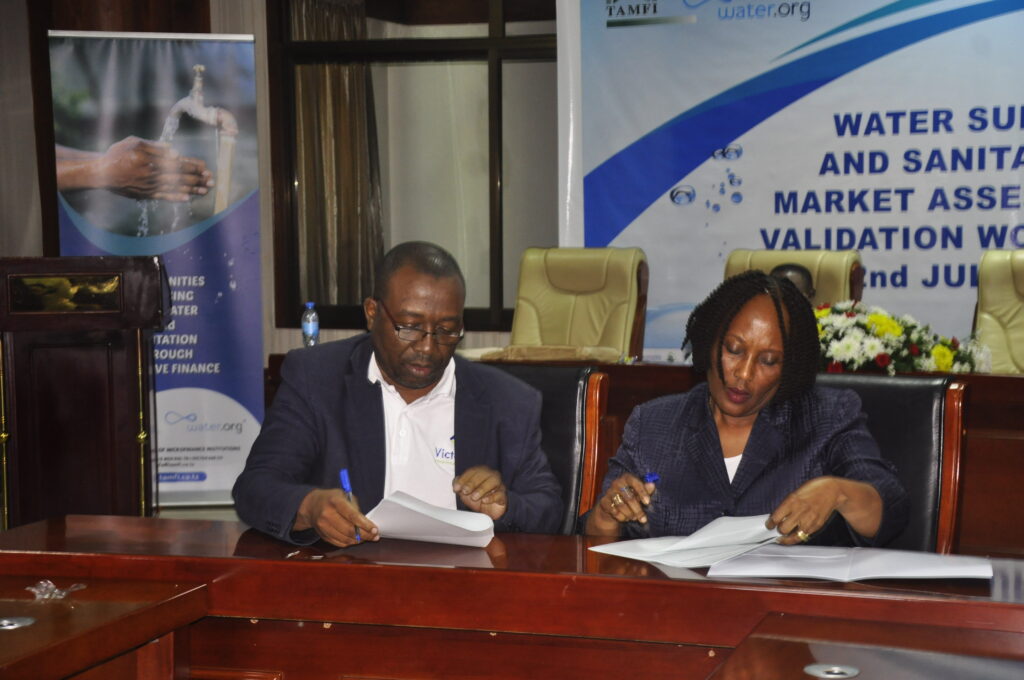
TAMFI: Nine microfinance institutions commit to affordable lending for water and sanitation
Dar es Salaam, 25, July 2022
Tanzania Association of Microfinance Institutions (TAMFI) and Water.org have signed a Memorandum of Understanding with nine financial institutions which have committed to start offering credit services for water supply and sanitation services in an initiative known as Water Credit Adoption Program (WCAD).
The nine institutions will lead in reducing the financing gaps in the supply, delivery, and distribution for the water and sanitation service providers and end users in the market.
They are: Victoria Finance Plc, Anastella Microfinance, K-Finance, HP Microfinance, Rukwa Farmers, Sama Kaya Saccos, Self MicroFinance Fund, MMCL Finance and Makazi Bora Finance. Also there are 9 others in the pipeline that will soon be signing as soon as they complete their internal institutional commitment process.
Before signing, the nine institutions,representatives of Micro Finance Institutions (MFIs) and diverse stakeholders had a dialogue on the presented preliminary results of the Water Supply and Sanitation (WSS) Market Assessment Report covering mainland Tanzania and Zanzibar.
The report makes it clear that health and economic development are intertwined in the supply of water and availability of sanitation and calls for wide adoption of water and sanitation financing by financial institutions in Tanzania.
According to TAMFI Vice Chairman Mr. Altemius Millinga, the signing of the MoU was the culmination of advocacy for MFIs to develop credit facilities for water supply and sanitation needs. “We are working with Water.org, an international nonprofit organization to have financial institutions provide affordable financing for the needs of clean water and sanitation to service providers and end users,” he said.
The signing involved TAMFI, MFIs who will be lending for water and sanitation to the household level, and a country representative of Water.org. The MFI’s that signed the document expressed their thanks to TAMFI for joining Water.Org Water Credit Adoption Program (WCAD), where small loans can empower people with safe water and sanitation solutions.
“Water supply and sanitation services are a viable business that qualifies for loans at the household level. The government has done a lot in the provision of water supply and sanitation, but there are places with no access to clean water or sewage services. That is where we come in,” Mr. Millinga said.
“There are places where residents can’t dig a toilet, but they can borrow and ensure they have sewerage services,’ he noted. He said there are places in Tanzania where the mention of the word toilet was still a taboo, making it hard for people to borrow for sanitation needs.
According to Development Vision 2025, Tanzania seeks to have attained 95 per cent access to clean water in urban areas and 85 percent in rural areas by 2025. Water.Org representative in Tanzania Ms Pendo Massawe appreciated the government’s huge efforts in clean and safe water infrastructure development over the years. She noted that sometimes all the people needed were small loans to buy equipment to bring clean water home from government facilities and construct sewers for improved sanitation. She explained that WaterCredit applies principles of microfinance to the water and sanitation sector. “Small loans to individuals and communities make great changes in their lives – can improve their health and eventually economic status,” she said.
The Water Supply and Sanitation (WSS) Market Assessment Report which was presented by the Managing Director of Perfect Approach, Mr. Emmanuel Kanagisa, noted that the majority of households spend between TZS 1,000 to 10,000 per month on water supply services. “Over 60% of households spend between TSH 1,000 to 10,000 on water supplied by water utilities and over 30% spend between TSH 10,000 and above TSH20,000. The study involving more than 300 respondents was conducted in Dar es Salaam, Dodoma, Mwanza, Arusha, Zanzibar, and Mbeya, he noted.
According to the report, water production for all water authorities in the country meets 59% of water demand (2019/20) and about 41% equivalent to over 24 million people’s demand for water remained unmet. The report says while water demand increased by about 19%, installed capacity grew by 10% and production by only 3% (2017/18 – 2019/20).
The report indicates that there is a need for financial institutions to offer affordable credit to the people to get safe water and build sewage systems,” noted Mr. Kanagisa. The affordability of products to enable safe water and sanitation was a big barrier that MFIs could help address.
Tanzania Association of Microfinance institutions (TAMFI) is the only umbrella body for Microfinance Institutions in Tanzania that seeks to build a flourishing microfinance sector in Tanzania through various areas of Coordination, Advocacy, Research and Development, Responsible Finance, Performance Monitoring and Capacity Building. TAMFI’s core purpose is to support its members to become professional and sustainable.
Water.org
Water. org’s Water Credit Adoption Program (WCAD) model represents the creation of a new space at the intersection of water, sanitation, and microfinance. The model empowers people to address their own water and sanitation needs by catalyzing small loans to people in developing countries who often lack access to traditional credit markets.


